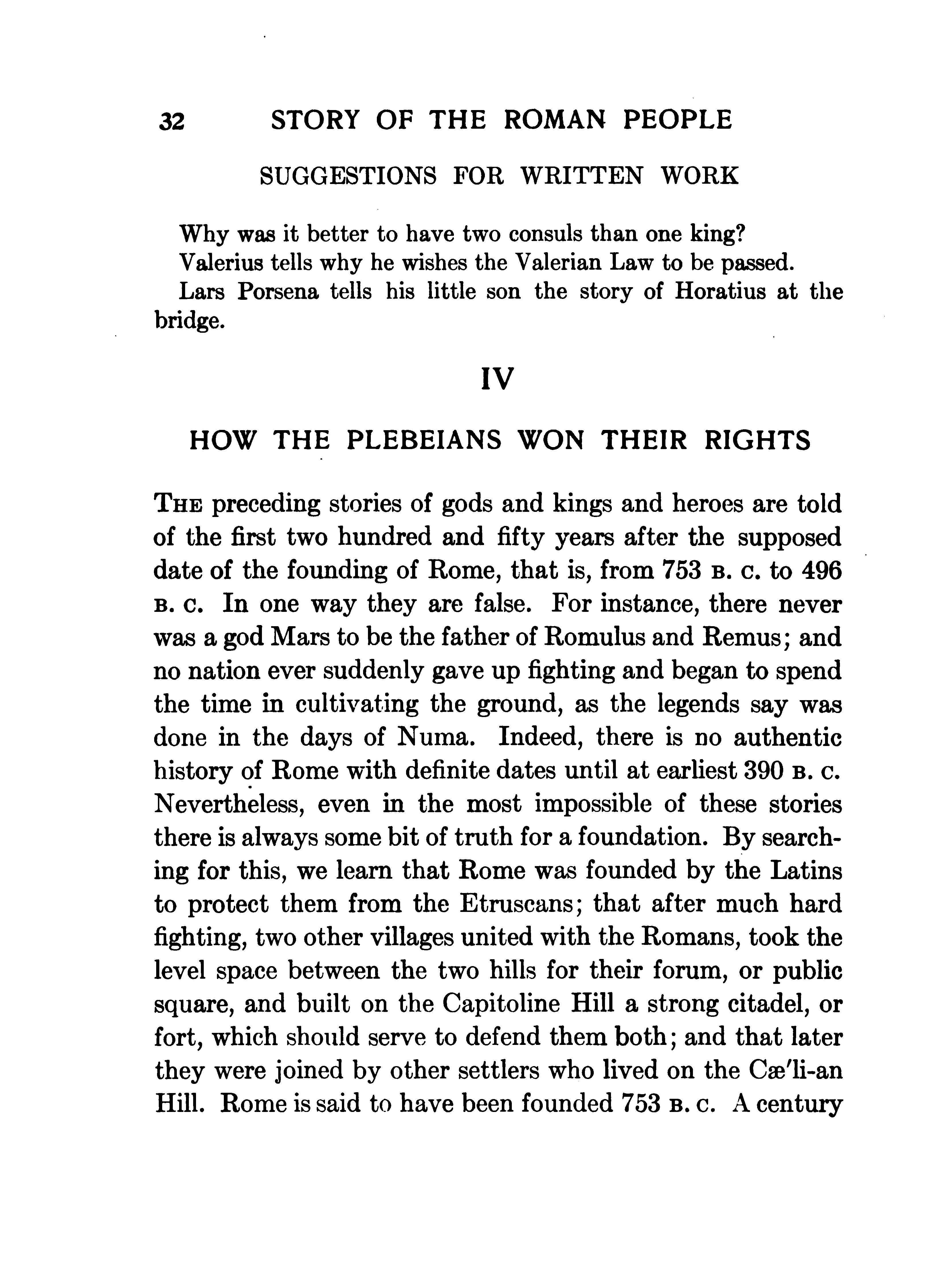

THE ATTEMPTS OF TARQUINIUS 31
Sçæv'o-la, or the left-handed , was given him in memory of his deed .

Tarquinius now induced the powerful Latins to help him . At Lake Re-gil'lus there was a fierce battle between the Romans on one side and the Latins and Etruscans on the other . The Romans were getting the worst of it when sud denly the twin gods , Cas'tor and Pol'lux , appeared among them . The armor of the gods and also their steeds were white as snow , and they had come to the aid of the Romans .

And forthwith all the ranks of Rome Were bold and of good cheer ; and soon the battle was won . Tarquinius Superbus gave no further trouble, and Rome never had another king.
SUMMARY
Instead of one king, two consuls were elected ; but in great public danger supreme command was to be given to a dictator. During the consulship of Brutus, his two sons were beheaded as traitors. Brutus's colleague Valerius had the Valerian Law passed, giving to citizens condemned to death or to be flogged, the right of appeal to the assembly of the centuries .
Lars Porsena became an ally of Tarquinius . Rome was saved by the bravery of Horatius . Porsena, moved by the courage of Scævola , made peace with the Romans .
The Latins now aided Tarquinius . Castor and Pollux came to the help of the Romans at Lake Regillus . Tarquinius made no further trouble .
SUGGESTIONS FOR WRITTEN WORK

Why was it better to have two consuls than one king?
Valerius tells why he wishes the Valerian Law to be passed . Lars Porsena tells his little son the story of Horatius at the bridge .
HOW THE PLEBEIANS WON THEIR RIGHTS
The preceding stories of gods and kings and heroes are told of the first two hundred and fifty years after the supposed date of the founding of Rome , that is , from 753 B. c . to 496 B. C. In one way they are false . For instance, there never was a god Mars to be the father of Romulus and Remus ; and no nation ever suddenly gave up fighting and began to spend the time in cultivating the ground , as the legends say was done in the days of Numa . Indeed , there is no authentic history of Rome with definite dates until at earliest 390 B. C. Nevertheless , even in the most impossible of these stories there is always some bit of truth for a foundation . By search ing for this, we learn that Rome was founded by the Latins to protect them from the Etruscans; that after much hard fighting, two other villages united with the Romans, took the level space between the two hills for their forum , or public square , and built on the Capitoline Hill a strong citadel, or fort , which should serve to defend them both ; and that later they were joined by other settlers who lived on the Ca'li-an Hill . Rome is said to have been founded 753 B.C. A century

